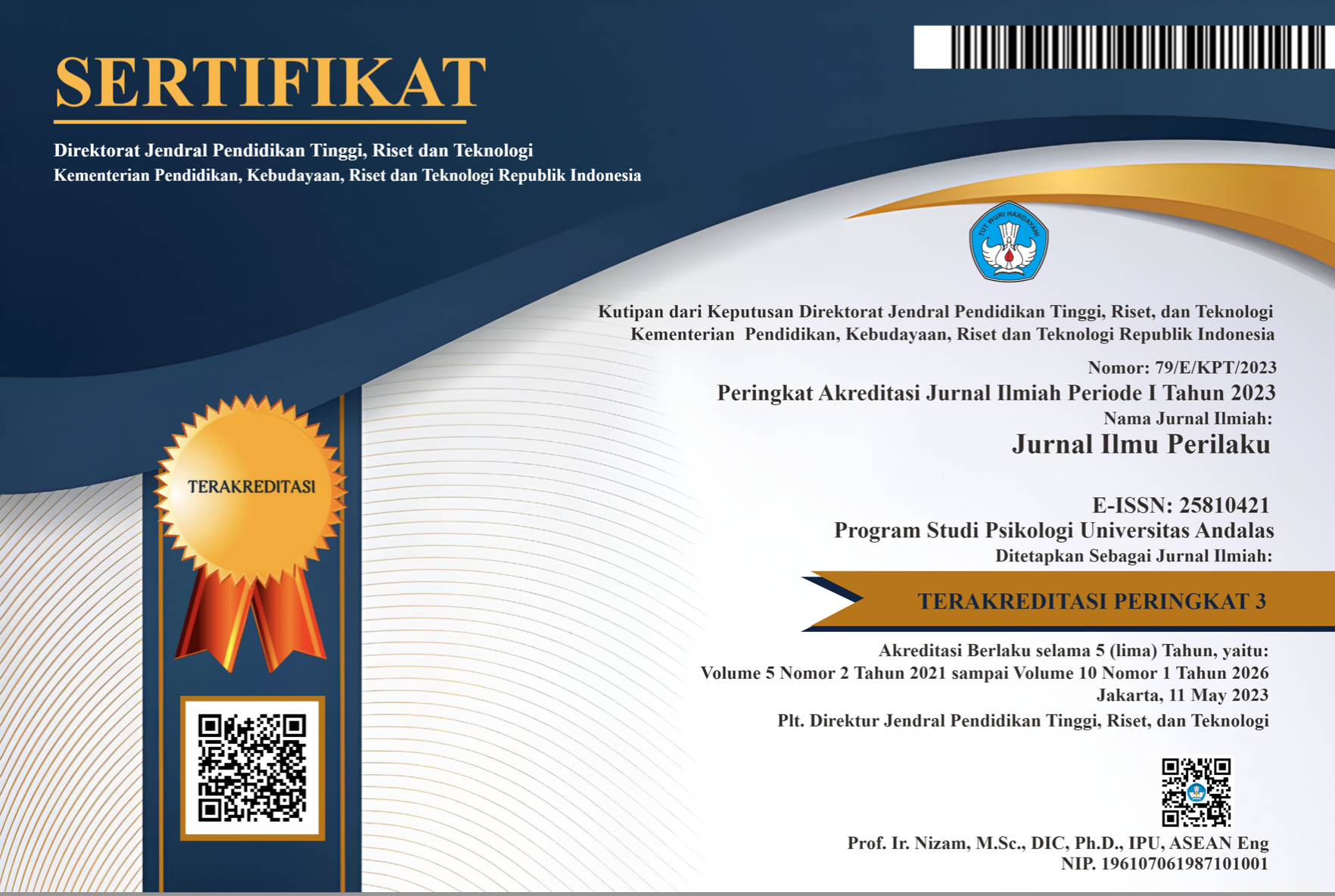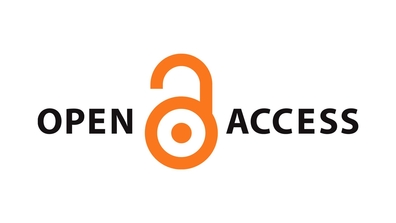Pengaruh Transformational Leadership dan Psychological Capital terhadap Work Engagement pada Karyawan Generasi Z
Abstract
Generation Z is known for frequently moving from one company to another. This is related to how Generation Z employees commit to their jobs both emotionally and intellectually within an organization or company. In other words, the issue among Generation Z employees is related to work engagement. The aim of rhis research is to determine the influence of transformational leadership and psychological capital on work engagement among generation Z employees. The population of this research is generation Z employees aged 18-27 years. In sampling, non-probability sampling techniques with purposive sampling were used. This research involved 102 generation Z employees as participants. The measuring instruments used are the Multifactor Leadership Questionnaire (MLQ) by Bass and Avolio (2004) with a realibility value of 0.953, the Psychological Capital Questionnaire – Short Version (PCQ) by Luthans, Avolio, Avey, and Norman (2007) with a reliability value of 0.817, and the Utrecht Work Engagement Scale (UWES) by Schaufeli and Bakker (2004) with a reliability value of 0.948. data collection in this research was carried out by providing an online questionnaire using google forms. The data analysis technique in this reasearch uses multiple linear regression. Based on the result of the research conducted, it shows that there is a significant influence of transformational leadership and psychological capital together on work engaggement in generation Z employees, amounting to 88,4% with a significance value of 0.000. Separately, transformational leadership has an influence of 47,9% with a significance value of 0.000 on work engagement, while psychological capital has an influence of 47,6% with a significance value of 0.000 on work engagement. Therefore,it is important to pay attention to leadership style and psychological capital to increase employee work engagement.
Downloads
References
Andini, A. G. (2019). The effect of psychological capital on work engagement with job crafting as a mediator variable among generation y employees. Russian Journal of Agricultural and Socio-Economic Sciences, 91(7), 324-331. http://dx.doi.org/10.18551/rjoas.2019-07.38
Angelia, D., & Astiti, D. P. (2020). Gaya kepemimpinan transformasional: tingkatkan work engagement. Psikobuletin: Buletin Ilmiah Psikologi, 1(3), 187 – 195. http://dx.doi.org/10.24014/pib.v1i3.9940
Astuti, S. F., & Wahyudi, H. (2021). Pengaruh psychological capital terhadap work engagement pada indihome pt. telekomunikasi Indonesia. Prosiding Psikologi, 7(2), 387-392. http://dx.doi.org/10.29313/.v0i0.28365
Bakker, A. B., & Leiter. M. P. (2010). Work Engagement; A Handbook of Essential Theory and Research. Taylor & Francis.
Bhramantyo, G., & Sawitri, D. R. (2021). Hubungan antara gaya kepemimpinan transformasional dengan keterikatan kerja pada karyawan perusahaan pengolahan kayu. Jurnal empati, 10(1), 56-61. https://doi.org/10.14710/empati.2021.30421
Bismoko, A. B., Suwandi, J. C., & Hillyani, C. A. (2023). Pengaruh kepemimpinan transformasional terhadap work engagement pada organisasi perusahaan. Jurnal Ekonomi, Manajemen, Akuntansi dan Bisnis, 1(3), 191-205. https://doi.org/10.59246/muqaddimah.v1i3.374
Dewi, A. T., Andrena, K. M., & Hellyani, C. A. (2023). Gaya kepemimpinan ideal untuk generasi z pada lingkungan organisasi. Jurnal Riset Manajemen dan Ekonomi (JRIME), 1(3), 102–111. https://doi.org/10.54066/jrime-itb.v1i3.307
Dukhaykh, S., Bukhari, N., & Alotaibi, M. (2023). The impact of transformational leadership on work engagement: The mediating role of job crafting. Environment and Social Psychology, 9(2), 1-12. https://doi.org/10.54517/esp.v9i2.1951
Gallup. (2017). State of the global workplace; employee engagement insights for business leaders worldwide. https://qualityincentivecompany.com/wp-content/uploads/2017/11/Gallup-State-of-the-Global-Workplace-Report-2017_Executive-Summary.pdf (diakses pada 20 September 2023).
Hariyadi, M. H. (2019). Pengaruh psychological capital terhadap work engagement pada karyawan. Jurnal Cognicia, 7(3), 359-368.
Jajak Pendapat. (2022). Ini faktor yang membuat gen z resign dari tempat kerja [Data set]. https://databoks.katadata.co.id/datapublish/2023/01/17/ini-faktor-yang-membuat-gen-z-resign-dari-tempat-kerja
Luthans, F., Avolio, B. J., Avey, J. B., & Norman, S. M. (2007). Positive psychological capital: measurement and relationship with performance and satisfaction. Personnel Psychology, 60(3), 541-572. https://psycnet.apa.org/doi/10.1111/j.1744-6570.2007.00083.x
Luthans, F., Youssef-Morgan, C. M., dan Avolio, B. J. (2015). Psychological Capital and Beyond. Oxford University Press.
Madyaratri, M. M., & Izzati, U. A. (2021) Perbedaan work engagement ditinjau dari masa kerja pada karyawan bagian produksi. Jurnal Penelitian Psikologi, 08(3), 24-35. https://doi.org/10.26740/cjpp.v8i3.41162
Marji., Wibawa, S. C., Hidayati, L., & Febiharsa, D. (2021). Pasar kerja generasi-z bidang vokasi. Cerdas Ulet Kreatif.
Millenial, G. (2022). Peneliti: Gen Z Lebih Pilih Menganggur daripada Gak Bahagia sama Pekerjaannya. https://kumparan.com/generasi-milenial/peneliti-gen-z-lebih-pilih-menganggur-daripada-gak-bahagia-sama-pekerjaannya-1z7QDzmeqgI/full (diakses pada 31 Oktober 2022).
Mjamil, I. (2021). Tak melulu soal uang, ada 5 alasan generasi z ingin resign. https://www.kompasiana.com/irhamnamjamil6351/6049da5dd541df4a455421a2/tak-melulu-soal-uang-ada-5-alasan-generasi-z-inginresign?page=2&page_images=1 (diakses pada 3 November 2022).
Muhammad, K., Prakoso, H., & Putera, V. S. (2021). Pengaruh transformational leadership terhadap work engagement pada karyawan finished product and distribution. Prosiding Psikologi, 7(1), 114-121. http://dx.doi.org/10.29313/.v7i1.25960
Ramadhani & Nindyati (2022). Gambaran makna kerja bagi generasi z di jakarta. Inquiry: Jurnal Ilmiah Psikologi, 13(1). 41-60
Robbins, S.P. (2003). Organizational behavior 10th edition. Prentice Hall.
Safrizal. (2023). Metaverse dunia virtual masa depan di era society 5.0. PT Global Eksekutif Teknologi
Sari, A. A., & Andriyani. (2023). Pengaruh transformational leadership terhadap work engagement dengan meaning in work sebagai variabel intervening (studi pada asn kantor pelayanan kekayaan negara dan lelang semarang), Diponegoro Journal of Management, 12(4), 1-9. http://ejournal-s1.undip.ac.id/index.php/dbr
Schaufeli, W., & Bakker, A. (2004). UWES utrecht work engagement scale. Occupational Health Psychology Unit Utrecht University.
Suheryanto, A. P. P., & Hatta, M. I. (2022). Pengaruh psychological capital terhadap work engagement pada karyawan milenial. Bandung Conference Series: Psychology Science, 2(1), 293-301. https://doi.org/10.29313/bcsps.v2i1.1038
Susanti, M., Widodo, & Praningrum. (2019). Pengaruh kepemimpinan dan kepribadian terhadap work engangement tenaga pendidikan universitas muhammadiyah bengkulu. Jurnal Penelitian Pendidikan Islam Al-Bahtsu, 14(1), 166-175
Syam & Arifin (2021). The effect of psychologycal capital on work engangement of nurse at pertiwi hospital in makassar city. Jurnal Pemikiran dan Penelitian Administrasi Publik, 11(1), 216-222
Triyono, U. (2019). Kepemimpinan tansformasional dalam pendidikan (formal, non formal, dan informal. Deepublish Publisher.
Zaharuddin., Supriyadi., & Wahyuningsih, S. (2021). Gaya kepemimpinan & kinerja organisasi. Penerbit NEM.
The non-commercial use of the article is governed by the Creative Commons Attribution license as currently displayed on Creative Commons Attribution-NonCommercial-ShareAlike 4.0 International License.
JIP's spirit is to disseminate articles published are as free as possible. Under the Creative Commons license, JIP permits users to copy, distribute, display, and perform the work for non-commercial purposes only. Users will also need to attribute authors and JIP on distributing works in the journal.
Please find the rights and licenses in Jurnal Ilmu Perilaku (JIP).
- License
The non-commercial use of the article will be governed by the Creative Commons Attribution license as currently displayed on Creative Commons Attribution-NonCommercial-ShareAlike 4.0 International License.
- Author’s Warranties
The author warrants that the article is original, written by stated author(s), has not been published before, contains no unlawful statements, does not infringe the rights of others, is subject to copyright that is vested exclusively in the author and free of any third party rights, and that any necessary written permissions to quote from other sources have been obtained by the author(s).
- User Rights
JIP's spirit is to disseminate articles published are as free as possible. Under the Creative Commons license, JIP permits users to copy, distribute, display, and perform the work for non-commercial purposes only. Users will also need to attribute authors and JIP on distributing works in the journal.
- Rights of Authors
Authors retain the following rights:
- Copyright, and other proprietary rights relating to the article, such as patent rights,
- The right to use the substance of the article in future own works, including lectures and books,
- The right to reproduce the article for own purposes, provided the copies are not offered for sale,
- The right to self-archive the article.
- Co-Authorship
If the article was jointly prepared by other authors, the signatory of this form warrants that he/she has been authorized by all co-authors to sign this agreement on their behalf, and agrees to inform his/her co-authors of the terms of this agreement.
- Termination
This agreement can be terminated by the author or JIP upon two months’ notice where the other party has materially breached this agreement and failed to remedy such breach within a month of being given the terminating party’s notice requesting such breach to be remedied. No breach or violation of this agreement will cause this agreement or any license granted in it to terminate automatically or affect the definition of JIP.
- Royalties
This agreement entitles the author to no royalties or other fees. To such extent as legally permissible, the author waives his or her right to collect royalties relative to the article in respect of any use of the article by JIP or its sublicensee.
- Miscellaneous
JIP will publish the article (or have it published) in the journal if the article’s editorial process is successfully completed and JIP or its sublicensee has become obligated to have the article published. JIP may conform the article to a style of punctuation, spelling, capitalization, referencing and usage that it deems appropriate. The author acknowledges that the article may be published so that it will be publicly accessible and such access will be free of charge for the readers.










